I spent a month working out in VR with my Meta Quest 3, and I’m finally sticking to my fitness goals
My Meta Quest 3 is my new favorite fitness gadget
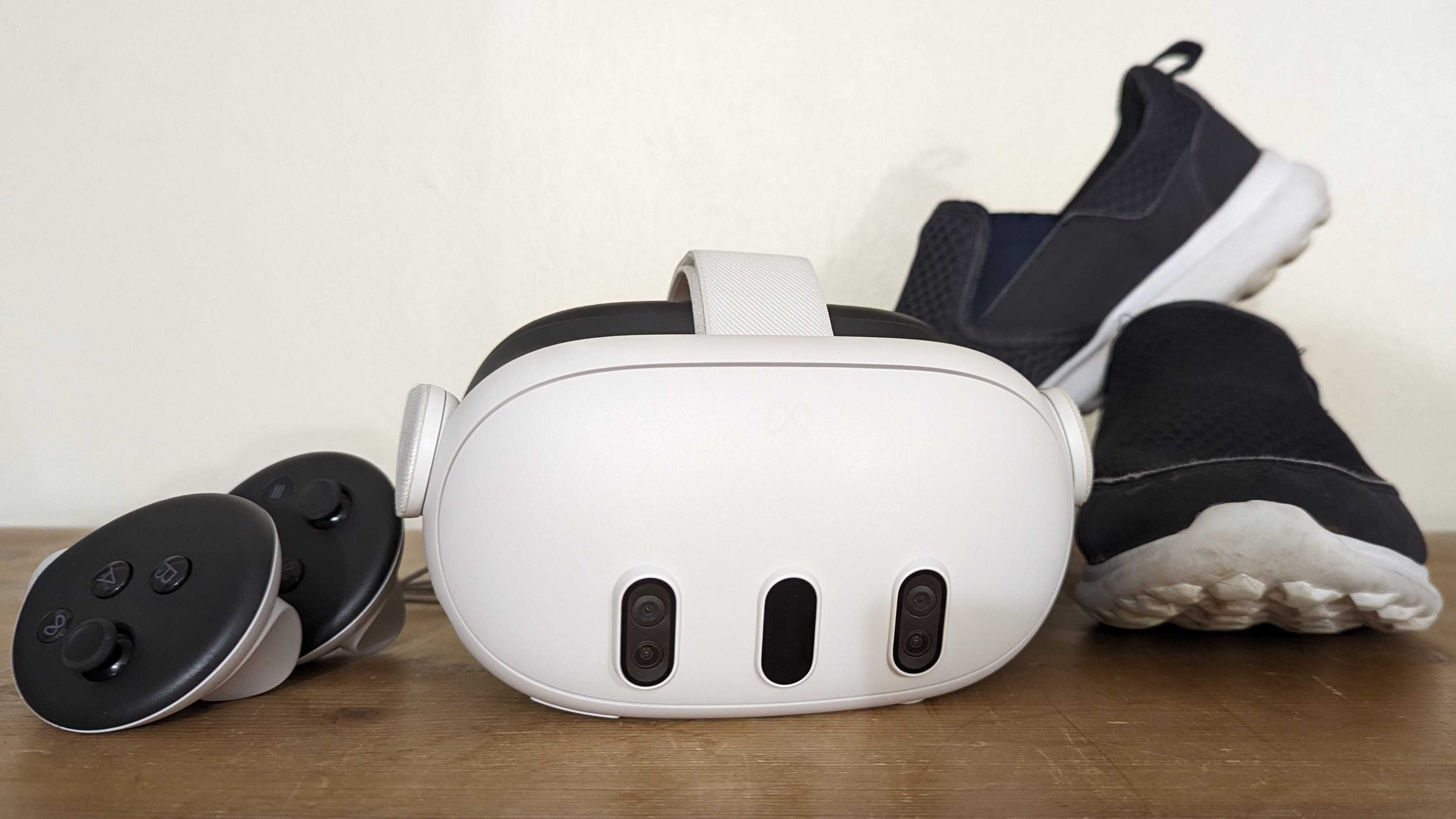
Sign up for breaking news, reviews, opinion, top tech deals, and more.
You are now subscribed
Your newsletter sign-up was successful
I use my VR headset on a weekly – if not daily – basis, and I’m well versed in everything that my Meta Quest 3 has to offer, from immersive epic adventures to interactive educational experiences to virtual cinema watch parties (though the latter point is a feature I hope the Meta Quest Pro 2 improves on).
But while I’ve thrown myself head-first into the depths of most VR pools of VR, one that I’ve barely dipped my toe into is virtual reality fitness. That changed this past month, as I've been using VR to work out every day.
I also decided to track my fitness progress by measuring a few health metrics before and after my month-long experiment, to see if VR might be the tool to finally help me get beach-body ready (a goal I set myself every year, only to crumble in the face of the monotony of 'conventional' exercise and the deliciousness of chocolate).
Now that my month is up I’ve packaged what I’ve learned first-hand – and some details I picked up from two fitness experts – into this piece. TL;DR: using my Meta Quest 3 instead of a gym is almost everything I wanted. It’s fun and approachable, while also being fairly intense – though there are some aspects of traditional fitness training that it can’t replace.
My couch to VR journey
My VR fitness experiment began on January 28 and finished on February 29. True to my intention, I exercised in VR for at least 15 minutes every single day. (Okay, I skipped four days due to a handful of (valid) excuses.)
For the remaining 29 days, I used a selection of VR apps that either involve a lot of movement – Beat Saber, Pistol Whip, and OhShape – or dedicated VR workout experiences to get into shape. By far my favorite was Supernatural, which is an excellent VR fitness package.
There are four types of routine: Boxing and Flow have you smashing blocks in time to music with your fists and batons respectively, Stretch is awesome as light yoga on active recovery days, and Meditate help you find zen moments inside the app’s beautiful virtual environments.
Sign up for breaking news, reviews, opinion, top tech deals, and more.
[A VR workout] meets people where they are and invites them in as they are
Leanne Pedante
When I wanted to push myself I could opt for longer or higher-intensity sessions, and on days where my motivation was lacking I could boot up a shorter or lower-intensity routine. Whatever I picked, one of six coaches guided me through the experience with their words of encouragement – they’re all pre-recorded, but at times I could swear the coaches were actually watching me, as they’d call out bad habits I was letting creep in, and congratulated me for every completed workout.
When I sat down with Leanne Pedante, the head of fitness at Supernatural, she explained that the approachable environment which I felt the app provided was exactly the experience she and team wanted to foster.
As someone who's worked with people who are coming out of eating disorder or body dysmorphia recovery, Pedante understands how unapproachable gyms can be for some people.
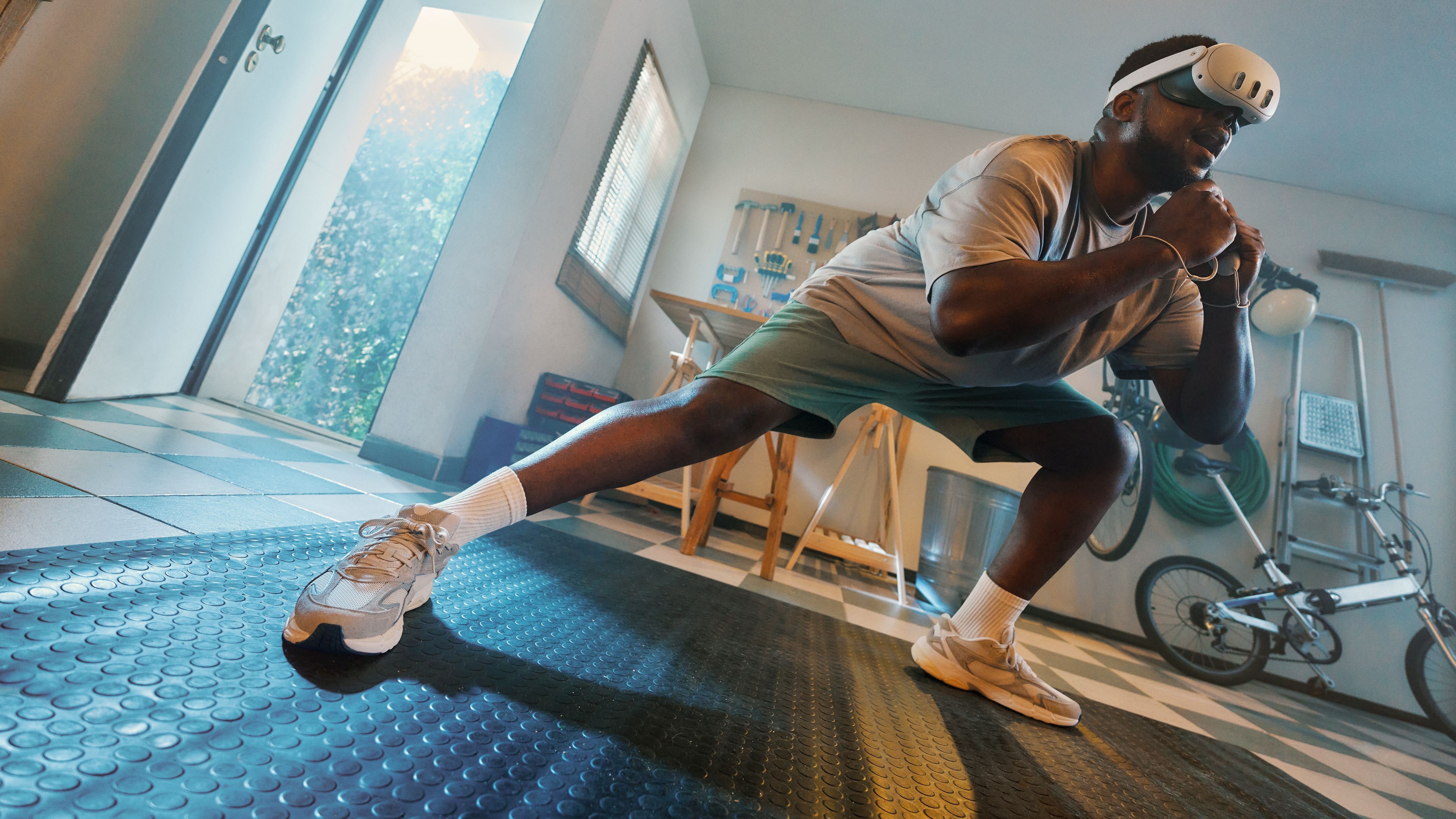
“When you go to a fitness space you are surrounded by other bodies, and you’re surrounded by mirrors,” she said. VR workouts, by contrast, “invite [people] in as they are, in a way that other fitness modalities can’t.”
You can set your goals to whatever level you’re comfortable with without worrying about people watching and judging you – you’re free to give it a go to the best of your ability.
"You can sit down and box your heart out, you're gonna get all the same points," Pedante added, "You can decide that you only want to use one arm, you can decide there's no squats, and you can make that change every day because your body changes every day."
She told me that it’s also easier to get into the zone with VR if you’re working out at home, more so than with traditional fitness mediums. “Because with any other home workout I do, I can see dishes and my laundry in my peripheral vision, my cell phone’s pinging," she explains. "VR is one of the only times in my day where I can pause and focus.” It's a sentiment I found to be true in my own experience.
VR workouts are certainly fun and accessible, and I'm sticking with them longer than more traditional exercise, but did they actually improve my fitness?
Virtual fitness, real results
As I mentioned above, to measure how much my fitness improved I tracked four health metrics. These were how many sit-ups and press-ups I could do in a row respectively before failure (when your body won’t let me do one more rep), my average time to run a kilometer over a 3km run, and my average heart rate for the run.
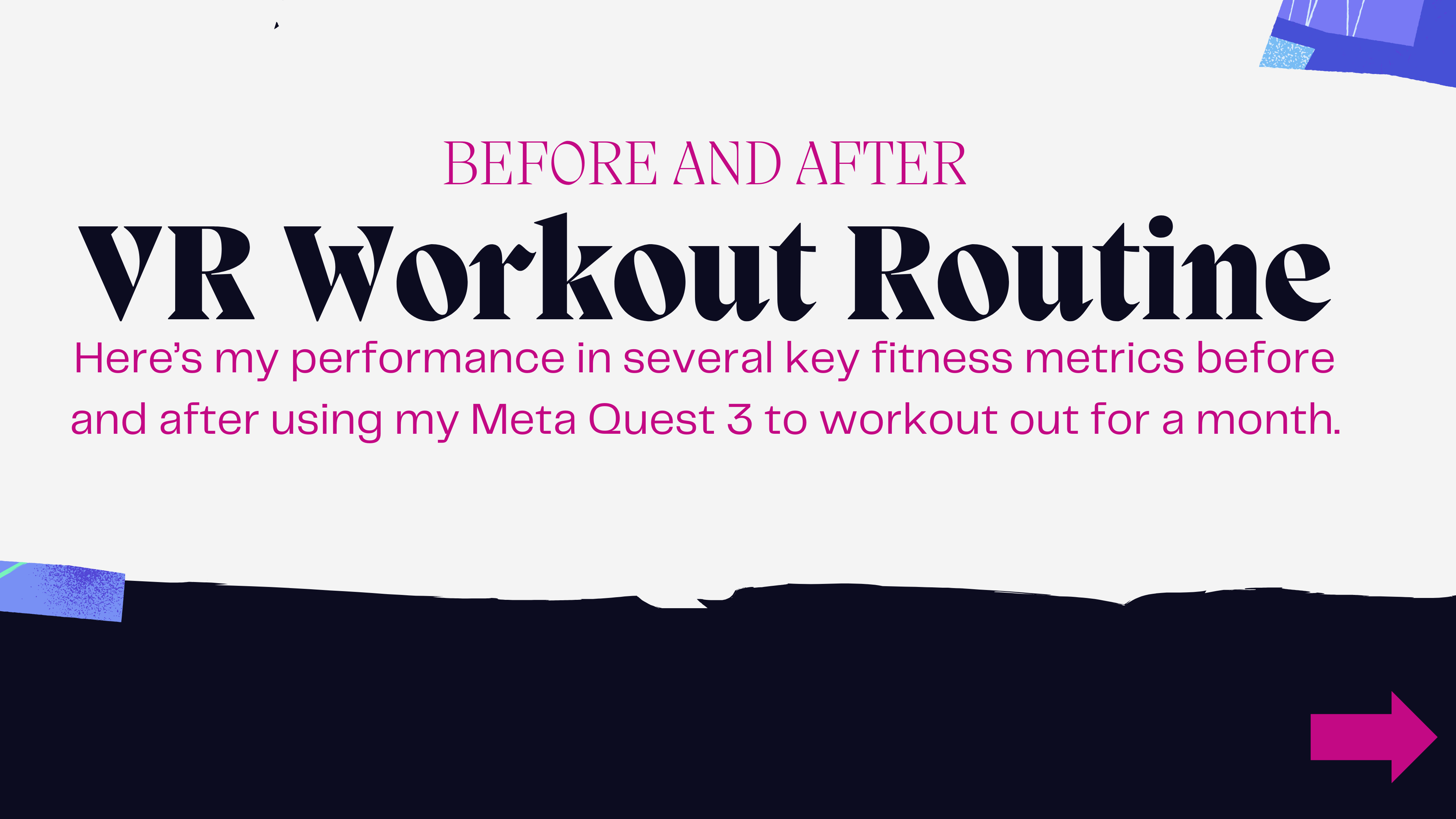
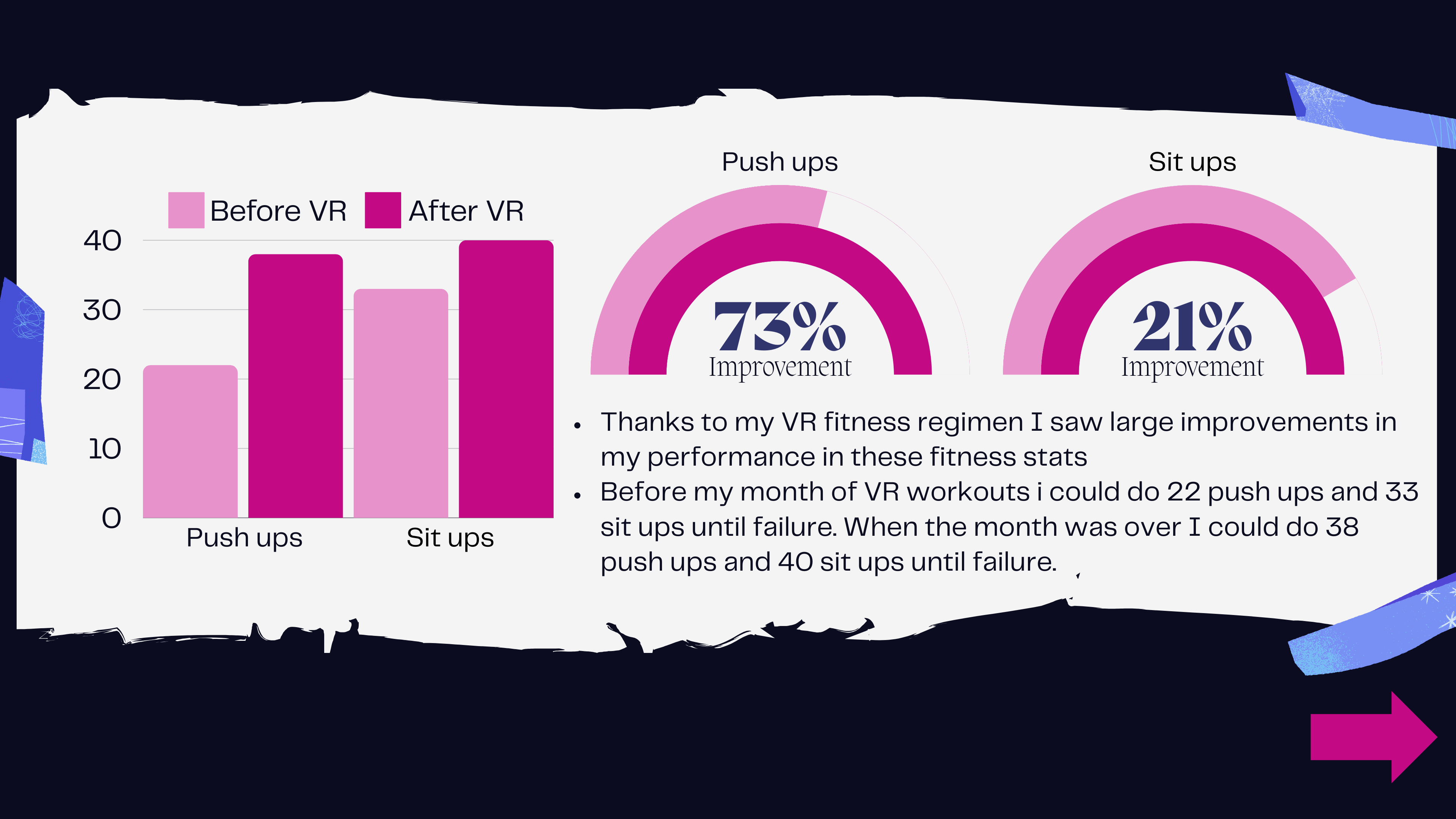
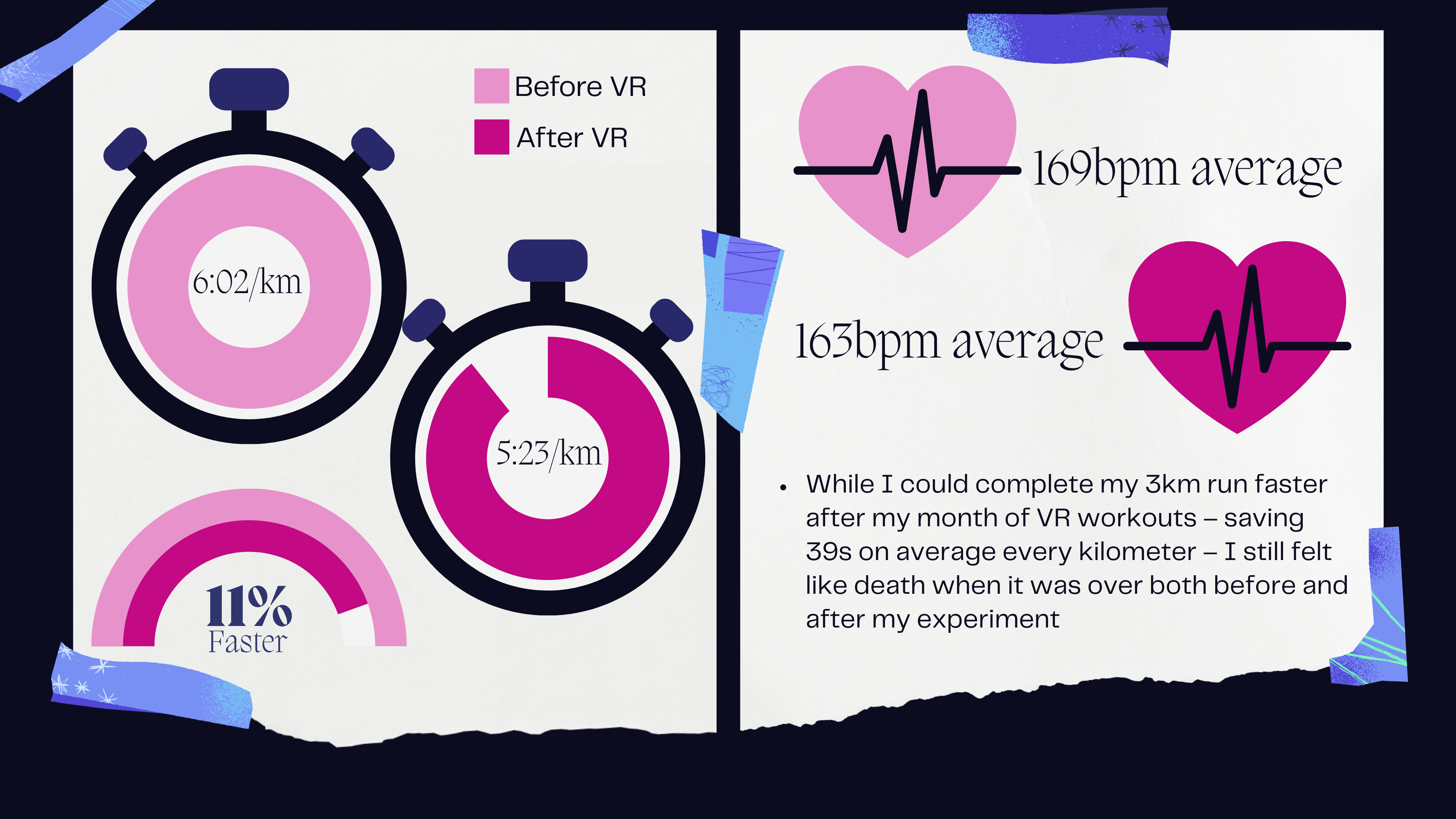
Before my experiment began I did 22 push-ups, 33 sit-ups, my average pace was 6 minutes 2 seconds per kilometer, and my average heart rate during the run was 169bpm. The day after my final workout I managed to achieve 38 push-ups, 40 sit-ups, a 5 minutes and 23 second per kilometer average, and a 163bpm average while running the same route.
The results matched up exactly with what I felt my workouts were focused on.
It's not about doing the perfect workout. It's about doing the workout that works for you.
Jason Coles
Supernatural’s boxing routines helped to improve my upper body strength by making the muscles in my arms burn as I punched target after target. My abs and lower body were also pushed by routines that had me activating my core and squatting low when guarding hits and ducking out the way of barriers, but I didn't feel pushed in these areas until I started actively searching out abs and lower body exercises (which I didn't do for the first few weeks).
Running-wise, there were aerobic components to my workouts, but they didn’t actively train me to be a more capable runner. My body had more to give after my experiment, but I didn’t know how to use my newfound fitness effectively.
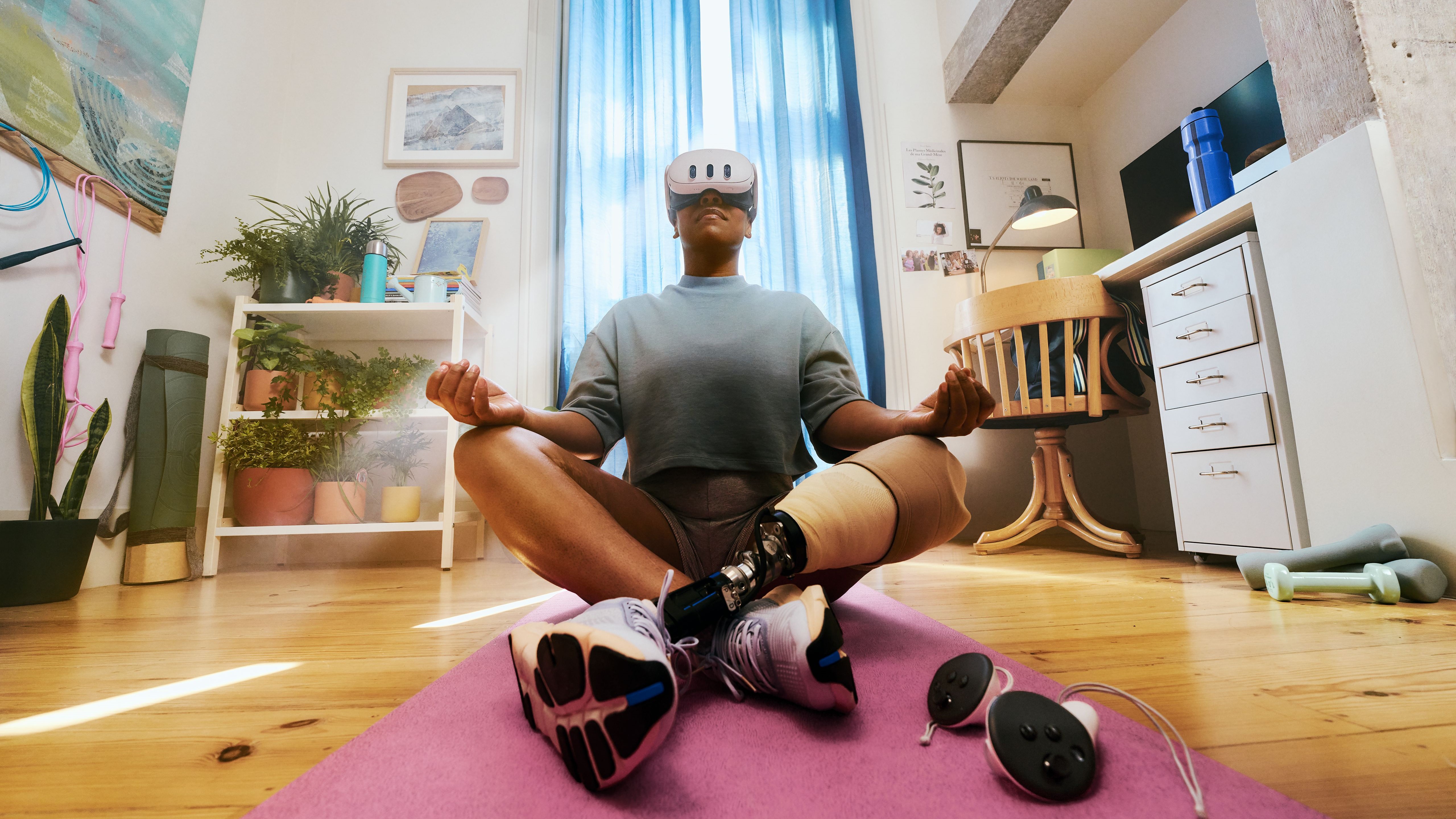
I spoke to Jason Coles, a qualified personal trainer, who explained that depending on what my goals are I might want to incorporate real-world routines into my schedule going forward.
“It's about understanding what your aims are, and finding what works for you,” he said. “It’s nice to be able to lift things, and if that’s your goal that’s cool, but I don’t think you’re going to get that from VR.”
Instead Coles explained that for him VR is an excellent way to “exercise by accident” by playing a game with friends. He added that coached experiences can push you a little harder – and give you training on how to exercise effectively and not injure yourself – but in general loftier fitness goals will require running, lifting weights or other non-VR fitness activities.
He also said, though, that it's equally respectable to stick with VR-only routines if your goal is to simply be more active. “It's not about doing the perfect workout. It's about doing the workout that works for you.”
My top 3 VR fitness tips to ace your workouts
If you’re inspired to grab a Meta Quest 3 – or another of the best VR headsets – and start your own VR workout regimen I have some essential tips that I picked up from my experiment (and from Pedante and Coles) and which are sure to help you.
Equipment, equipment, equipment
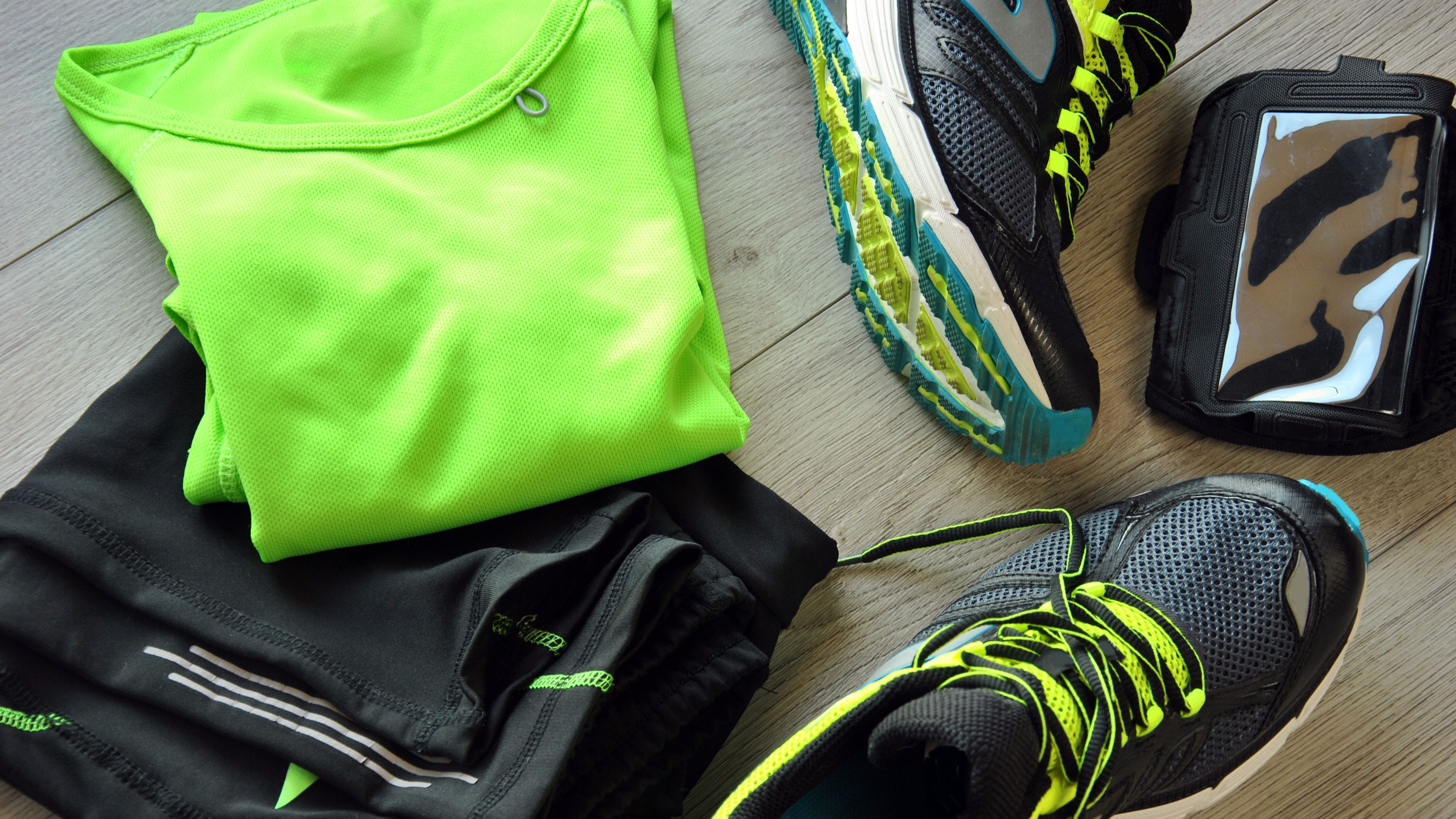
First, wear workout clothing. Something that’s comfortable and supportive, but which doesn’t restrict your movement. It’s no fun sweating in your jeans, as I discovered on day one.
Also, get a mat, as it’s easy to 'drift' when you're in VR. If you can feel the mat beneath your trainers you know you’re still in your safe space, and you can safely throw punches knowing you’ll only hit air. While we're on this subject, make sure to really clear your space, as full-force punching a bookshelf hurts.
Pedante recommends getting a water bottle with a straw or spout so that you can take a drink without needing to take your headset off and losing any momentum you’ve built up.
After that, Coles’ number one recommendation is a good facial interface. The default fabric one that most headsets come with soak up sweat, and they’re a pain to clean. After a week I swapped to the official silicone cover, and I never looked back.
Remember, you don’t have to get everything at once. I started just fine with the default Quest 3, and only started to upgrade once I was into the swing of things. Don’t use waiting for the perfect setup as an excuse to procrastinate.
Try a mix of software

Just like gyms are full of different equipment you can work out with, the Quest store is jam-packed with a variety of fitness-related software that offers different exercise options.
If you don’t enjoy one app, try something else. A lot of these VR fitness experiences have free trials, so you can give them a whirl before spending any money.
Coles also pointed out that – depending what your goals are – you might get the exercise you want from less-fitness-focused VR games like Dungeons of Eternity, Until You Fall and other action-packed titles. These and other VR games have an inherently active component that can provide a surprisingly thorough workout on higher difficulties.
And if you play with friends you might find that you push yourself a little harder, as needing to save your buddy from a demon (even a virtual one) can be great motivation.
Be realistic
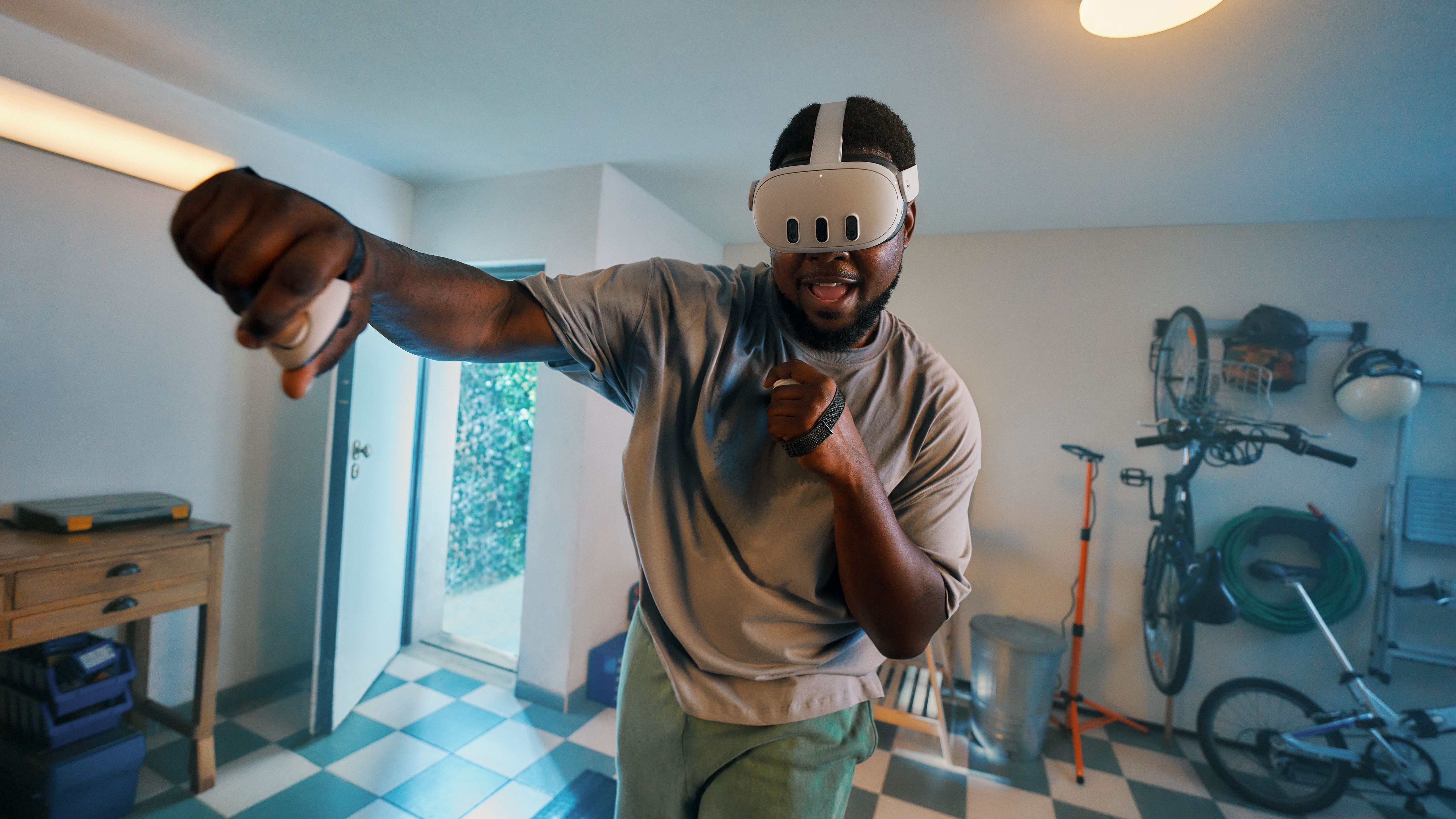
The most important thing to remember is to be kind to yourself, and set sensible goals. That’s not to say you shouldn’t set targets you have to push yourself to achieve, but don’t expect to go from couch potato to spending an hour everyday doing ultra-high intensity boxercise in a matter of days.
Setting a goal can improve motivation, but setting one that you can’t possibly achieve and then failing can destroy any desire you have to keep working out.
Start small. Maybe just workout one day a week, or play just one Beat Saber track every day. Then, when you’re ready, take things up a gear. Start using your VR app of choice several times a week, and maybe work in some real-world exercise like a jog or a weights session.
Or, if you like the level you’re at, don't be afraid to just stick with it – doing something, even just a five-minute workout, is a heck of a lot better for you than doing nothing at all.
You might also like

Hamish is a Senior Staff Writer for TechRadar and you’ll see his name appearing on articles across nearly every topic on the site from smart home deals to speaker reviews to graphics card news and everything in between. He uses his broad range of knowledge to help explain the latest gadgets and if they’re a must-buy or a fad fueled by hype. Though his specialty is writing about everything going on in the world of virtual reality and augmented reality.
